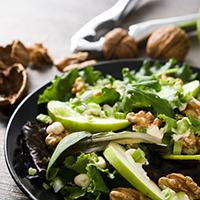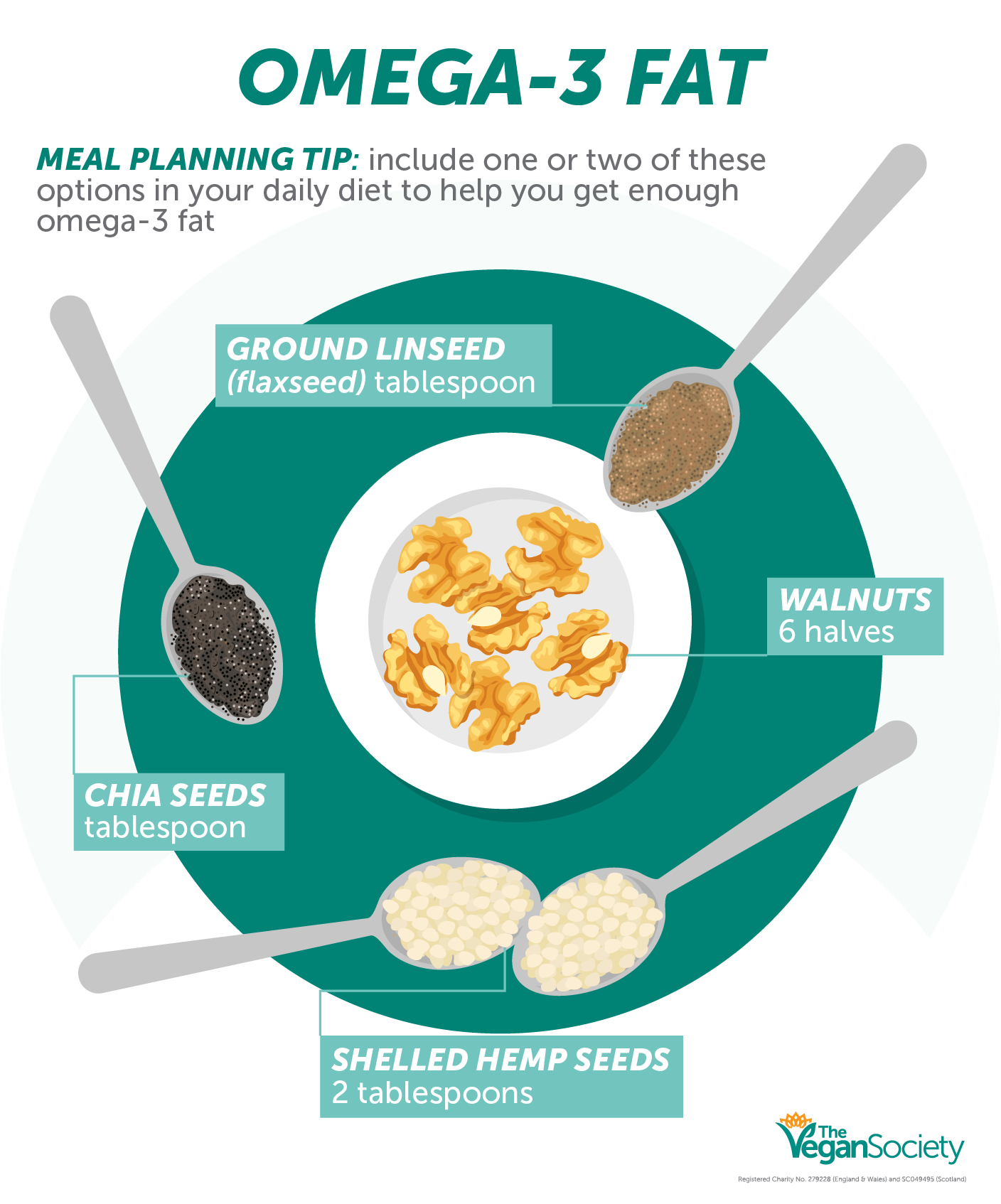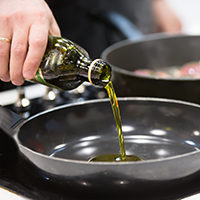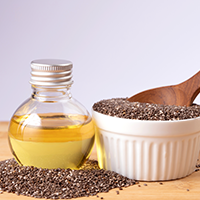
Why are omega-3 fats important?
We all need some fat in our diets, including the essential omega-3 fat alpha-linolenic acid (ALA). We have to consume ALA because our bodies cannot make this nutrient. It is used to make long-chain omega-3 fats, such as eicosapentaenoic acid (EPA) and docosahexaenoic acid (DHA). Omega-3 fats have an important role in supporting eye health, skin health, our immune system, and brain and nerve development.

Click to view full infographic


How can you get enough omega-3 fats?
As a vegan, you can take several steps to ensure that you are getting enough of these essential fatty acids based on recommendations from public health authorities.1,2 The main thing is to ensure that your daily diet includes a really rich source of ALA.3 Examples are provided in the infographic above.
Some experts suggest that it is a good idea to aim for a higher daily intake.4 Choosing two of the above options every day may help to optimise your omega-3 fat status.
Food ideas
Now that you have an idea of good sources of vegan omega-3 fatty acids, here are some ways to enjoy these plant foods:
- Sprinkle ground linseed (flaxseed) or shelled hemp seeds on overnight oats, porridge or breakfast cereal.
- Stir chia seeds into some fortified yoghurt alternative.
- Use walnuts to add flavour and texture to a salad or press them into peanut butter on toast.
- Blend walnut, linseed (flaxseed) or hemp oils into dips or use them to make salad dressings.

It is helpful to avoid consuming a lot of omega-6 fats, which compete with omega-3 fat and tends to be plentiful in our diets:
- Limit servings of pumpkin seeds or sunflower seeds to around 30 g (¼ cup).
- Use vegetable (rapeseed) oil as your main cooking oil instead of sunflower, corn or sesame oil.
Some public health authorities suggest an EPA and DHA intake of 250 mg per day for adults.1,2 People following a vegan diet consume almost none of these fats from food sources. Although it is not thought to be essential, it is possible for vegans to obtain EPA and DHA from a microalgae supplement. Research is limited, but suggests that this type of supplementation may help to optimise omega-3 fat status.5 Microalgae supplementation is an alternative approach to doubling your intake of foods rich in omega-3 fats. This is a particularly important consideration during pregnancy, breastfeeding and childhood due to the role of omega-3 fats in brain, nerve and eye development.
Omega-3 fat tips to take away
- Make sure that your daily diet includes a really rich source of vegan omega-3 fats, such as chia seeds, ground linseed, shelled hemp seeds or walnuts.
- Limit servings of pumpkin or sunflower seeds to around 30 g (¼ cup).
- Use vegetable (rapeseed) oil as your main cooking oil.
- Consider using a microalgae supplement, particularly during childhood, pregnancy and breastfeeding.
Further information
You might be interested to check out the following webpages:
- Nutrition overview – information to help you ensure that your overall diet is balanced and varied.
- Life stages – including pregnancy, breastfeeding and different age groups.
References
- Food and Agriculture Organization (2010) Fats and Fatty Acids in Human Nutrition: Report of an Expert Consultation . FAO Food and Nutrition Paper 91.
- European Food Safety Authority. Scientific Opinion on Dietary Reference Values for Fats, Including Saturated Fatty Acids, Polyunsaturated Fatty Acids, Monounsaturated Fatty Acids, Trans Fatty Acids, and Cholesterol www.efsa.europa.eu/sites/default/files/scientific_output/files/main_documents/1461.pdf (accessed 12 October 2023)
- United States Department of Agriculture. FoodData Central https://fdc.nal.usda.gov/ (accessed 12 October 2023)
- Vegan Health. Daily Needs https://veganhealth.org/daily-needs/#Omega-3-Fats (accessed 12 October 2022)
- Vegan Health. Omega-3s: Research https://veganhealth.org/omega-3s-part-2/ (accessed 12 October 2023)
These are general guidelines about nutrition. If you have concerns about your diet, please talk to your doctor about seeing a dietitian. Discussing the use of supplements with a health professional will help to ensure that they are suitable for you.
